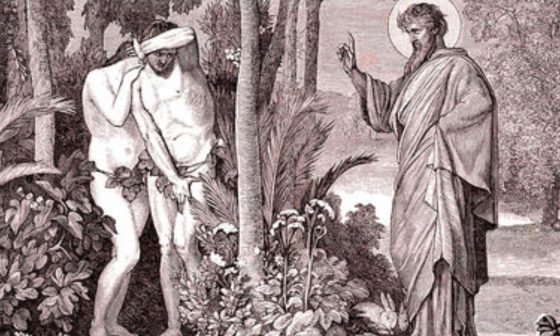Throughout history, women have played significant roles in spreading religious teachings and proclaiming faith, often defying cultural and social norms of their times.
In the Bible, several women are recognized as pioneers in preaching and sharing God’s word, setting examples of courage, faithfulness, and leadership.
In this article, we’ll look into the stories of 9 pioneering women who are believed to have been early preachers in the Bible.
Who Was the First Woman Preacher in the Bible
The Bible does not specify the first woman preacher, but it acknowledges several women as prophetesses and leaders who proclaimed God’s word.
Here are 9 pioneering women in the Bible who served as preachers.
1. Deborah
Deborah stands out as a prominent figure in the Old Testament, known for her multifaceted leadership during a tumultuous period in Israel’s history. As both a prophetess and a judge, Deborah wielded spiritual insight and judicial authority with wisdom and discernment. Her role as a judge involved settling disputes and dispensing God’s wisdom to the people who sought her counsel under the shade of the palm tree named after her.
Deborah’s leadership transcended mere spiritual guidance; she played a pivotal role in military strategy. When the Israelites faced oppression from the Canaanites, Deborah heeded God’s call to mobilize Barak, the military commander, to confront their enemies (Judges 4-5).
Despite societal norms of her time, Deborah’s unwavering faith in God’s commands and her courage in battle positioned her as a respected voice in both spiritual and secular matters. Her song of victory following the defeat of the Canaanite army celebrated God’s deliverance and established her legacy as a fearless leader and prophetess in Israel’s history.
2. Miriam
Miriam, the elder sister of Moses and Aaron, played a significant role as a prophetess and leader among the Israelites during their exodus from Egypt.
Miriam witnessed firsthand the miraculous deliverance of the Israelites through the Red Sea, an event that inspired her to lead the women of Israel in a triumphant song of praise and thanksgiving to God (Exodus 15:20-21). Her prophetic song, filled with joy and gratitude, celebrated God’s power and faithfulness in rescuing His people from bondage.
Miriam’s leadership continued throughout the wilderness journey, where she shared in the responsibility of guiding the Israelites and offering spiritual counsel alongside Moses and Aaron. Despite moments of challenge and testing, Miriam’s steadfast faith in God’s promises and her prophetic role as a spokesperson for God exemplified her influential position among the people of Israel.
3. Huldah
Huldah emerged as a significant figure during the reign of King Josiah of Judah, a period marked by religious revival and reform. When the Book of the Law (likely the book of Deuteronomy) was rediscovered in the temple, King Josiah recognized the need for spiritual guidance and sought the counsel of Huldah, a revered prophetess known for her wisdom and insight into God’s word (2 Kings 22:14-20; 2 Chronicles 34:22-28).
Huldah’s authoritative interpretation of the Scriptures affirmed their authenticity and delivered a message of both judgment and hope to the king and the people of Judah. Her prophetic proclamation reinforced the importance of obeying God’s commands and renewing the covenantal relationship with Him.
Huldah’s role as a teacher and interpreter of scripture played a crucial role in shaping religious reforms under King Josiah, emphasizing the centrality of God’s word in guiding the nation’s spiritual renewal.
4. Anna
Anna, a devout prophetess mentioned in the Gospel of Luke, devoted her life to prayer and worship in the temple. After experiencing the loss of her husband early in their marriage, Anna chose to dedicate herself wholly to God, spending her days fasting, praying, and seeking His presence (Luke 2:36-37). Her steadfast faith and unwavering commitment to God’s promises were richly rewarded when she encountered the infant Jesus during His presentation at the temple.
Filled with the Holy Spirit, Anna immediately recognized Jesus as the fulfillment of God’s long-awaited promises of redemption and salvation for Israel (Luke 2:38). Overjoyed by this divine encounter, Anna wasted no time in proclaiming the significance of Jesus to all who were eagerly awaiting the Messiah’s arrival. Her prophetic declaration underscored Jesus’ identity as the long-awaited Savior and Messiah, affirming His pivotal role in God’s plan of redemption for humanity.
Anna’s role as a prophetess in bearing witness to Jesus’ identity highlights her essential contribution to the unfolding narrative of God’s salvation history. Her faithful devotion and prophetic insight serve as an inspiration to believers, emphasizing the profound impact of personal encounter with God and steadfast faith in recognizing His presence and purposes.
5. Priscilla
Priscilla, alongside her husband Aquila, emerged as influential figures in the early Christian church, known for their partnership in ministry and their unwavering commitment to proclaiming the gospel. As tentmakers by trade, Priscilla and Aquila traveled extensively, engaging in missionary work and spreading the teachings of Jesus Christ. Their encounter with the apostle Paul in Corinth marked the beginning of a deep and collaborative ministry partnership (Acts 18:1-3).
Priscilla’s active involvement in teaching and mentoring believers, including the learned preacher Apollos, demonstrated her leadership and theological acumen in expounding God’s word (Acts 18:24-26). Together with Aquila, Priscilla played a pivotal role in nurturing the growth and maturity of early Christian communities, equipping believers with sound doctrine and spiritual guidance.
Their partnership exemplified a synergistic approach to ministry that empowered both men and women to actively participate in advancing God’s kingdom. Priscilla’s leadership and influential role as a teacher and mentor underscored the significant contributions of women in shaping and strengthening the early Christian church, emphasizing unity, collaboration, and steadfast commitment to the gospel message.
6. Philip’s Daughters
In Acts 21:8-9, we encounter Philip the evangelist, who had four unmarried daughters gifted with the ability to prophesy. Philip’s daughters were esteemed for their spiritual gifts, which enabled them to proclaim God’s message with clarity and authority within the early church community. Their role as prophetesses reflected their active participation in ministry and their commitment to edifying and nurturing the spiritual growth of believers through prophetic utterances.
Philip’s daughters exemplified the diversity of spiritual gifts bestowed upon believers by the Holy Spirit, highlighting their integral role in building and strengthening the early Christian church. Their prophetic ministry contributed to the spiritual vitality and communal unity of believers, fostering an environment of spiritual discernment, encouragement, and edification.
By exercising their spiritual gifts, Philip’s daughters played a crucial role in advancing the gospel message and reinforcing the foundational truths of faith within the early church. Their prophetic voices served as a testament to God’s empowering presence and His faithfulness in equipping His people for ministry and service.
7. Junia
Junia is mentioned by the apostle Paul in Romans 16:7, where he refers to her as being “of note among the apostles.” This designation suggests that Junia was highly esteemed and recognized for her significant role in the early Christian church, possibly as an apostle or missionary. Paul’s commendation of Junia challenges traditional interpretations and underscores her leadership and influential ministry among the apostles and early believers.
Junia’s inclusion in Paul’s greetings highlights the equality and shared responsibility of men and women in proclaiming the gospel and advancing God’s kingdom. Her esteemed position as an apostle or prominent figure in the early church serves as a testament to her dedication, faithfulness, and effective ministry in spreading the message of Jesus Christ.
8. Mary Magdalene
Mary Magdalene is prominently featured in the Gospels as one of Jesus’ devoted followers and witnesses to His ministry, crucifixion, and resurrection. Her transformative encounter with Jesus, where He freed her from seven demons (Luke 8:2), marked the beginning of her steadfast commitment to follow Him. Mary Magdalene’s unwavering loyalty and love for Jesus led her to accompany Him throughout His ministry, providing support and care for His needs along with other women (Luke 8:1-3).
Mary Magdalene played a crucial role as a witness to the pivotal events of Jesus’ crucifixion and resurrection. She was among the women who discovered the empty tomb and received the angel’s proclamation of Jesus’ resurrection (Matthew 28:1-10).
Jesus appeared to Mary Magdalene after His resurrection, commissioning her to go and tell the disciples that He had risen, thereby making her the first witness and messenger of the resurrection (John 20:11-18).
Mary Magdalene’s bold proclamation of Jesus’ resurrection demonstrated her role as an evangelist and herald of the good news, emphasizing the transformative power of encountering the risen Christ. Her faithful testimony continues to inspire believers to proclaim the reality of Jesus’ resurrection and His victory over sin and death.
9. Lydia
Lydia, a businesswoman from Thyatira, played a significant role in early Christian missions and ministry. As a seller of purple cloth, Lydia was a prominent figure in Philippi, known for her hospitality and generosity (Acts 16:11-15). Her encounter with the apostle Paul and his companions led to her conversion and baptism, followed by her invitation for them to stay in her home.
Lydia’s commitment to hospitality extended to her support for Paul and Silas in their ministry efforts in Philippi. Her leadership and influence within the Philippian church were characterized by her steadfast faith in Jesus Christ and her dedication to spreading the gospel message. Lydia’s role as a woman of faith and business acumen exemplified her active participation in advancing God’s kingdom and supporting the work of ministry.
Her partnership with Paul and Silas underscored the collaborative efforts between men and women in spreading the gospel and establishing vibrant Christian communities. Lydia’s exemplary life of faith, generosity, and leadership continues to inspire believers to embrace their roles as ambassadors for Christ and to use their gifts and resources to impact their communities for the glory of God.
Conclusion
These pioneering women in the Bible each demonstrated remarkable faith, leadership, and prophetic insight, challenging societal norms and leaving a lasting legacy of courage and devotion to God’s purposes.
Their courage, faithfulness, and dedication to God’s purposes paved the way for future generations of women to participate actively in ministry and proclaim the gospel.
Their examples continue to inspire believers today, affirming the biblical principle that God calls and equips both men and women to serve Him faithfully and proclaim His truth to the world.







